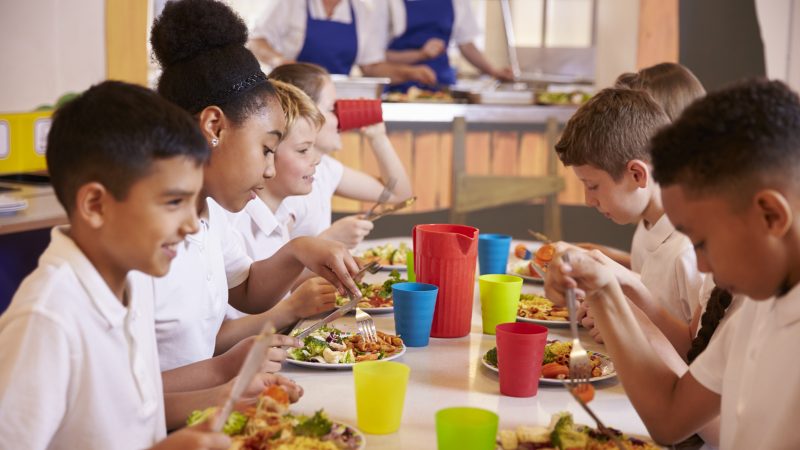
Research published by the Labour Party today has found that children could miss out on 24 million meals this summer following the refusal of the government to fully extend the free school meals provision over the break.
Commenting on the holiday activities and food programme, which Labour has highlighted is set to provide meals for just 16 of the 30 weekdays over the holiday, Tulip Siddiq MP described the government’s approach as “utterly shocking”.
“Feeding hungry children cannot be a part-time activity, yet this Conservative government is again stripping away the support that millions of families rely on. Ministers have had to be shamed into providing food for hungry children throughout the pandemic and it is a disgrace that we are having to do this all over again,” the shadow minister for children and early years said today.
“Ensuring no child goes hungry is at the heart of Labour’s children’s recovery plan, which includes guaranteeing free school meals support over all school holidays during the pandemic.”
The plan for the summer holiday activities and food programme proposes that local authorities provide support to families for only four days a week, across four weeks of the holiday, which is equivalent to 16 out of 30 weekdays.
Education Secretary Gavin Williamson said in April: “I am confident this summer of enrichment and engagement in academic work will be a great success, tailored to local circumstances by their local authorities and also the wonderful heads and teachers who best understand the needs of their students.”
But campaigners including footballer Marcus Rashford, Food for Life and Children’s Commissioner Dame Rachel de Souza have called on the government to extend the provision announced by the government over the entirety of the summer break.
Labour has repeatedly criticised the provision. Data revealed by the party earlier this year, via a freedom of information request, estimated that 549,472 more children became eligible for free school meals in the first year of the pandemic.
“The Conservatives have failed to support families throughout this pandemic and are now reliant on local councils to plug gaps in free school meals support throughout the holidays,” Shadow Education Secretary Kate Green said at the time.
Boris Johnson performed what Keir Starmer described as a “welcome U-turn” during the height of the pandemic to provide free school meals over the 2020 summer break while households struggled through the first wave of the health crisis.
But the Conservatives subsequently voted down a Labour motion in October, proposing support for children over the holidays up to and including the Easter break in 2021. The government again U-turned following a public outcry.
Further outrage was sparked after inadequate food packages, later distributed to households with children eligible for school meals who were studying at home while schools were closed during the pandemic, were shared on social media in January.
Figures from the annual school census showed a rise from 1.44 million children (17.3% of all pupils) in January last year to 1.74 million (nearly 21%) at the same time this year. More than 100,000 of the increase came between October and January.
Pupils are eligible for free meals if their parents or carers are receiving Universal Credit, or similar benefits, with a household income of less than £7,400 a year.
Extra funding for schools through the ‘pupil premium’ is linked to the number of pupils on free school meals. The government recently switched to using figures from the October census to determined the level of this support, rather than January.
“These latest statistics confirm that recent government changes to how pupil premium funding is allocated will leave many schools with less funding to support their low-income pupils from April this year,” National Foundation for Educational Research senior economist Jenna Julius said last month.
General secretary of the Association of School and College Leaders Geoff Barton has described the change in the pupil premium dates as “nothing short of shameful” and said tackling child poverty “simply has to be a top priority for the government”.
According to the Child Poverty Action Group, 4.3 million children were living in poverty in the UK in 2019-20. This represents 31% of all children, or nine in a classroom of 30. The figure for children in single-parent households was 49%.
The campaign group found that 75% of children growing up in poverty lived in a household where at least one person is in employment, and that children from large families or from Black and minority ethnic groups were more likely to be in poverty.




More from LabourList
SPONSORED: ‘Industrial hemp and the challenge of turning Labour’s priorities into practice’
‘A day is a long time in politics, so we need ‘action this day’’
Strong support for child social media ban among Labour members, poll reveals